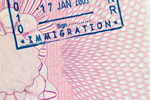Tips on living overseas on a budget

Tips on living overseas on a budget
As with everything else in the 21st century, living, working or retiring overseas is endlessly linked in surveys and on blogs with wealth rather than with the real benefits of choosing a new lifestyle in an often drastically different culture. Five-star villas, upscale restaurants, exclusive golf clubs, luxury malls and the endless other trappings of bloated Western society simply aren’t necessary for a successful retirement or relocation, but the adventure of a lifetime needs careful financial planning.
Living in expatland on a carefully calculated budget is as unfashionable nowadays as are dreadlocks, even in locations where the indigenous population earns less than five per cent of the average Western wage. Would-be expats who don’t need to flash the cash are judged harshly by those who do, but the reality is they’re getting the best of the deal. The initial expenses of emigration may be high, but increasing numbers of those who’re rejecting the values of their home countries are more than happy to plan ahead for a sufficiency-economy lifestyle.
Practicalities such as visas, relocating pension payments after opening a new bank account, keeping an eye on the current exchange rate when you’re sending your money to your new country and finding a home which suits your requirements without costing the earth and its moon are boring necessities but need to be done. Once you’re settled, planning a budget can be a new adventure as well as a challenge. Whether you’ve taken on a new job or are planning to live on savings, investments or a pension, your start point is your monthly income.
Your main expenses will be electricity, water, internet, health insurance if necessary, transportation and maintenance costs. Food is a moveable feast as regards price, with local markets the best source of economic ingredients. If you enjoy making your own meals, bringing a cookbook relevant to your chosen culture is a must, and avoiding Western-style restaurants is a good way to make sure you stay true to your fixed budget. Learning enough of the local language to get by is both a way into the local community and an interesting challenge. The closer you live to the natural world, the more you’ll realise you’re in the right place.
Related Stories:
- Tips on a trouble-free relocation as an expat overseas - July 20, 2020
- Expats in Malaysia still banned from overseas travel - July 17, 2020
- China hits its expats with 45 per cent tax on overseas earnings - July 15, 2020
- Saudi extends visas and permits of expat professionals trapped overseas - July 14, 2020
- Tips for newly-arrived expats on dealing with Japan’s healthcare system - July 9, 2020
- Tips for buying investment property as an expat in Dubai - July 3, 2020
- Tips for expats taking their pets with them on relocation - June 10, 2020
- Tips on getting your expat life back after the pandemic shuts down - June 9, 2020
Latest News:
- Tips on a trouble-free relocation as an expat overseas - July 20, 2020
- Expats find peace in the covid-19 refuge of Dahab town - July 20, 2020
- Is Kuwaitization the unintended result of the oil price crash? - July 20, 2020
- Expats unhappy abut changes to Korean points-based visa system - July 17, 2020
- Chiang Mai and Bangkok no longer bargain locations for expats - July 17, 2020
- Expats in Malaysia still banned from overseas travel - July 17, 2020
- Vietnam welcomes expats to its safe, affordable lifestyle - July 16, 2020
- Asian tiger economies reach out to expats in Hong Kong - July 16, 2020
- HSBC Asia to cut back on internal expat relocations - July 16, 2020
- Tips on integrating for newly-arrived expats - July 15, 2020


